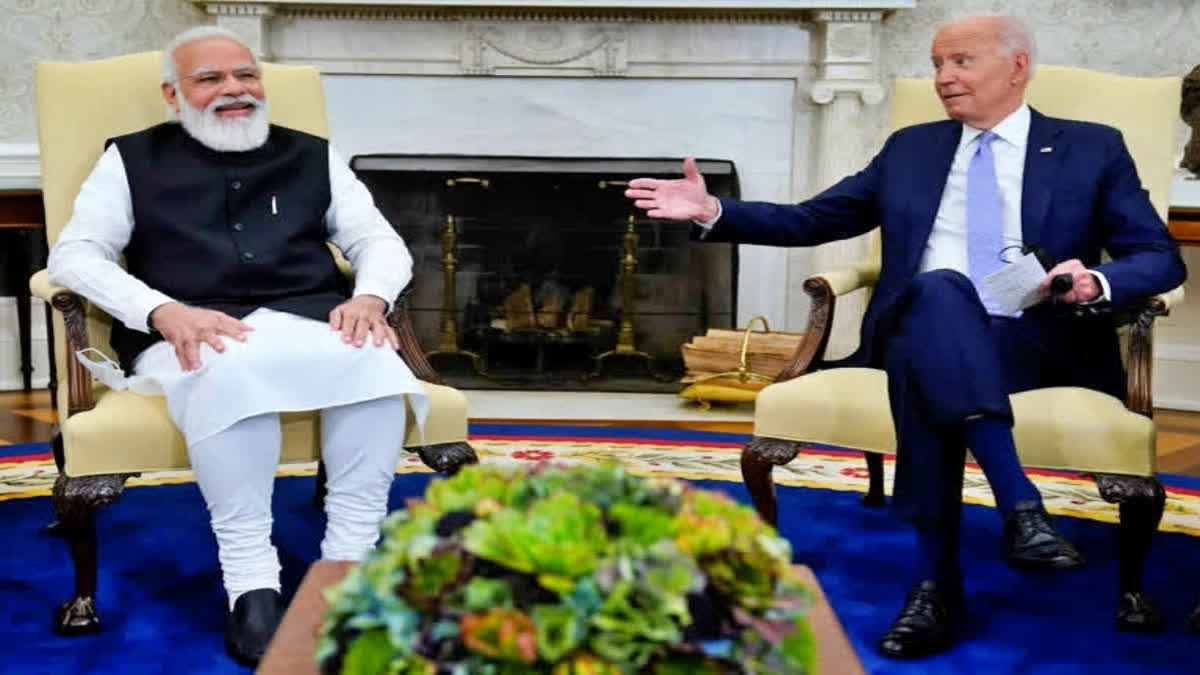Hyderabad: As usual, the vexed issue of alleged human rights violations in India, which has dominated the discourse right from former US President Barack Obama's time, cropped up on the second day of Prime Minister Narendra Modi's US trip though the US tone appeared soft this time.
On Wednesday, rights advocates in Washington put pressure on President Joe Biden to publicly raise the issue of India's deteriorating human rights record with Prime Minister Narendra Modi. Significantly, the US has long debarred Narendra Modi from entering the country through a Visa ban alleging his hand in communal riots in Gujarat. Giving in to the demands of rights leaders, President Joe Biden is likely to raise US concerns about human rights during his talks with Prime Minister Narendra Modi but he maintained won't not “lecture” the Indian leader on the issue, a top American official said.
White House National Security Adviser Jake Sullivan indicated that President Biden would raise his concerns on human rights with Modi. “We do so publicly. We do so privately. We do so in a way where we don’t seek to lecture or assert that we don’t have challenges ourselves….And that will be the nature of the conversations that take place here over the course of the next couple of days,” he was quoted as saying by the US media.
So what caused the soft approach from the US?
Time has considerably changed and the tide seems in India's favour. Dollar continues to wobble as U.S. inflation fuels hopes of slower Fed rate path. The US is running low on some high-end weapons systems and ammunition and its arms market is dwindling. Under Narendra Modi, India has gone for a tit-for-tat approach which is a departure from the previous regime's stance. While the US kept putting unrelenting pressure on India on alleged human rights violations, the Indian side never buckled under any pressure. In 2015, President Obama during his India trip, urged support for religious tolerance and human rights in a speech in New Delhi. India fought with a sharp retort. In March, U.S. released its report on human rights practices which listed "significant human rights issues" and abuses in India, including reported targeting of religious minorities, dissidents and journalists.
The findings come nearly a year after Secretary of State Antony Blinken said the U.S. was monitoring what he described as a rise in human rights abuses in India by some government, police and prison officials, in a rare direct rebuke by Washington of the Asian nation's rights record. India instantly hit back at the US pointing out its own 'dismal' record in protecting rights.
In 2022, External Affairs Minister S Jaishankar came out with a big statement that India is concerned over human rights violations in the US. Unfazed and unbowed in the face of American pressure, India pushed back at Washington on several contentious issues - including the threat of sanctions and its crusade for human rights. India however maintained that ties between the two sides are strong enough to accommodate differences.
Despite countering the US on allegations of human rights violations in India, the Narendra Modi-led regime has maintained a fine balance so that bilateral ties are not jeopardised at any cost. Another reason for the US's soft stance may stem from the fact that under pressure from Russia since the Ukraine war, the super power is scouting for an ally in India.




